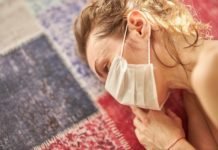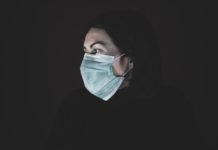COVID-19 Corona virus has become a global reality, so has working from home. We all know that it’s a turbulent time but what’s worse is the fear & anxiety that is hitting people. School closures have served as a wake-up call for many families where both the parents have full-time jobs. Parents are feeling the pressure to engage their children in meaningful activities while their phones pinging every minute with work related messages, getting stressed because some have a looming deadline. This is the time for the parents to rise up by putting behind fear and anxiety and channelize their energy into what can they do to productively engage a child at home. In this difficult time, it is important to care for the mental health of the children because they can be traumatized by the parent’s anxiety. For some, it is a claustrophobic, but it is important to stay positive. Parents must remind the children that social distancing is a form of action, and it’s one of the few things we can do to fight against the spread of the virus, and it’s a unique opportunity to spend quality time together as a family. COVID-19 is the infectious disease caused by the most recently discovered corona virus. This new virus and disease were unknown before the outbreak began in Wuhan, China, in December 2019. There is no evidence that current medicine can prevent or cure the disease. We do not recommend self-medication with any medicines, including antibiotics, as a prevention or cure for COVID-19. However, there are several ongoing clinical trials that include both western and traditional medicines. And there is no vaccine and no specific antiviral medicine to prevent or treat COVID-2019. However, those affected should receive care to relieve symptoms. People with serious illness should be hospitalized. Most patients recover thanks to supportive care. Possible vaccines and some specific drug treatments are under investigation. They are being tested through clinical trials.
Corona viruses are a large family of viruses which may cause illness in animals or humans. In humans, several corona viruses are known to cause respiratory infections ranging from the common cold to more severe diseases such as Middle East Respiratory Syndrome and Severe Acute Respiratory Syndrome. Institutions and teachers are working hard on digital and e-learning platforms. They are utilizing this time and undertaking different activities to make the best possible use of technology. We are running into an environment where the screen time is likely to increase significantly. Not all kids are going to easily roll with this quarantine feeling, but I do believe we all can emerge from this feeling stronger, more self- aware, more connected to our communities and loved ones. If we can look upon this period as a learning experience, we can guide the children through it and set them up for expanded minds and hearts rather than residual anxiety and scars. Most of us wake up in the morning and turn the TV on or use our mobile phones to consume information about this rapidly evolving pandemic. The lockdown and self-isolation can also trigger our emotions, making us feel anxious or stressed. While these feelings are completely normal because of the unprecedented circumstances we are in, it’s important to curb its impact on us both emotionally and physically. Government is taking all necessary steps to ensure that we are prepared well to face the challenge and threat posed by the growing pandemic of COVID-19 the Corona Virus. With active support of the people of India, we have been able to contain the spread of the Virus in our country. The most important factor in preventing the spread of the Virus locally is to empower the citizens with the right information and taking precautions as per the advisories being issued by Ministry of Health & Family Welfare. On 22 March, the Government of India decided to completely lockdown 82 districts in 22 states and Union Territories of country where confirmed cases have been reported till 31 March. Inter-state movements are allowed during the lockdown period. However some states have closed their borders. On 24 March, PM announced a complete nationwide lockdown, for 21 days, & extended nationwide lockdown till 3 May, with a conditional relaxation from 20 April for the areas that have been able to contain the spread. He also announced a ₹ 15,000 crore aid for the health care sector. This money would be used for developing testing facilities, PPEs, ICUs, ventilators and for training medical workers.
Symptoms:
People with COVID-19 have had a wide range of symptoms reported- ranging from mild symptoms to severe illness. Some people become infected but don’t develop any symptoms and don’t feel unwell. Most people (about 80%) recover from the disease without needing special treatment.
These symptoms may appear 2-14 days after exposure to the virus:
- High Fever
- Dry Cough
- Shortness of breath
- Chills
- Chest pain
- Pain in Muscles or joints
- Headache
- Sore throat
- loss of smell
- Tiredness
- Vomiting
- Diarrhea
- Runny nose
Testing for COVID-19
The most popular and common test for Covid-19 is the Reverse Transcription Polymerase Chain Reaction (RT-PCR) tests – a very sensitive test that looks for the RNA of the virus in a sample. Health workers collect swabs from patients or suspected patients from the mouth or the nose. The RT-PCR method can even pick out one virus particle from the samples. At the start of the outbreak, most countries relied on RT-PCR tests as they can give quick results: labs take a minimum of five hours. One type of rapid antibody testing uses blood samples of suspected patients to test for the presence of the Covid-19 virus. It looks for antibodies in the blood of people believed to have been infected. Antibodies are produced over days to weeks after infection with the virus.
Spreads of COVID-19
COVID-19 is thought to spread mainly through close contact from person-to-person in respiratory droplets from someone who is infected. People who are infected often have symptoms of illness. Some people without symptoms may be able to spread virus. COVID-19 is a new disease and we are still learning about how it spreads and the severity of illness it causes.
Person to person spread
The virus is thought to spread mainly from person-to-person.
- Between people who are in close contact with one another within about 1Meter.
- Through respiratory droplets produced when an infected person coughs, sneezes.
- These droplets can land in the mouths or noses of people who are nearby or possibly be inhaled into the lungs.
- Some recent studies have suggested that COVID-19 may be spread by people who are not showing symptoms.
At high-risk for severe illness from COVID-19 are
- People 65 years and older
- People who live in a nursing home or long-term care facility
- People with chronic lung disease or moderate to severe asthma
- People who have serious heart conditions
- People who are immune compromised
- People with diabetes
- People with chronic kidney disease undergoing dialysis
- People with liver disease & other immune weakening medications.
Impact on people
Food delivery services were banned by several state governments despite the central government’s approval. Thousands of people emigrated out of major Indian cities, as they became jobless after the lockdown. Following the lockdown, India’s electricity demand fell down to a five-month low on 28 March many states are keen on opening up liquor shops during this lockdown. Reports of a surge in illicit liquor sales and attempted suicide by some alcoholics and most importantly, drying up revenue from alcohol sale for these states is the main motive. It is now allowed in Maharashtra, Punjab and Kerala.
Six ways to take care of your mental health during the lockdown:
Here are a few simple steps you can take to ensure that your mental health is well taken care of!
1. Talking to family & friends
While some of us are living through this lockdown with our families, many of us are not. We’re away from home and the situation is getting the worst of us. So, pick up your phone and talk to your parents. They must be as anxious as you are, but sharing your thoughts will definitely make you feel much lighter and less lonely. Video call your friends.
2. Stand by a routine
While most of us would love to sleep in, because we don’t have offices to rush to, having a set time is important for our mental well-being. It helps us feel that we’re in control of the situation. So eat your meals at regular times, and have set times for sleeping and waking up.
3. Exercise
- Instead of waking up to your phone, start your day with meditation.
- Research shows that meditation reduces the symptoms of depression and anxiety.
- A good 10-minute meditation in the morning can calm you considerably and enhance self-awareness.
- But if you’re not the kind to meditate, working out at home is a good way to stay healthy and kill time.
- Anything that gets your heart pumping or helps build muscle is excellent for both physical & mental health.
4. Develop positive affirmations
When you’re washing your face in the morning, look at yourself in the mirror and say positive things like ‘You’re amazing’ and ‘You’re going to get through this. Trust me, while this sound stupid, it gives boosts your self-confidence in a hot second.
5. Creative thinking
All of us have a hidden artist inside us. So let that creative being out and make her/him try something new every few days. Pursue that hobby you’ve been long ignoring. Draw, paint, sing, play an instrument, dance, use all this time in your hand to let the artist in you create. You never know, you might just surprise yourself. Also, you don’t necessarily have to be good at everything. It’s important to do these things just for fun.
6. Disconnection
This is the most important of them all. When everything gets overwhelming, and it will, limit your consumption of news, social media and just breathe. It’s important to switch off sometimes to rejuvenate our mind. Avoid news that could make you feel anxious and choose to read stuff that’s practical & helpful.
Recommendation:
- One Meter social distancing
- Washing hand at least 20 seconds
- Before touching the mask, clean hand wash with an alcohol-based
- Avoid touching eyes, mouth, and nose with unwashed hands
- Clean and disinfect frequently touched object & surfaces
- Stay at home when you are sick
- Avoid crowd places
- Eating healthy food
- Positive thinking
- Full sleep
- Avoid grilled and fatty food
- Relaxation
- Meditation and Yoga
- Avoid close contact with people who are sick
- Not travel while sick
References
- Corona virus India Live updates: Read corona virus latest news, corona virus cases, death toll and more”. The Economic Times. Retrieved 15 March 2020
- Corona virus outbreak live updates”. Times of India. Retrieved 19 March 2020.
- Corona virus Outbreak LIVE Updates”. First post
- Corona virus – 32 Deaths, 1,076 New COVID-19 Cases in India in Last 24 Hours” NDTV. 17 April 2020. Retrieved 17 April 2020
- Corona virus update: India’s Covid-19 cases near 19,000-mark, death toll at 603. State-wise numbers”. Live mint. 21 April 2020. Retrieved 21 April 202
- Corona virus Pandemic: 1,229 new cases and 34 deaths in last 24 hrs; India’s tally reaches 21,700 with 686 fatalities”. English. jag ran. 23 April 2020. Retrieved 23 April 2020.
- India sees biggest Covid-19 spike in 24 hours with 1,752 cases, 37 deaths”. Hindustan Times. 24 April 2020. Retrieved 24 April 2020
- Corona virus Pandemic: 1,463 new cases and 60 deaths in last 24 hrs; India’s tally climbs to 28,380 with 886 fatalities”. Jag ran. 27 April 2020. Retrieved 27 April 2020
- Corona virus PM calls for COVID-19 Emergency Fund for SAARC”. The Hindu. 15 March 2020. ISSN 0971-751X. Retrieved 15 March2020
- India observes 14-hour corona virus curfew”. BBC News. 22 March 2020. Retrieved 22 March 2020
- Gentle man, Jeffrey; Schultz, Kai (24 March 2020). “PM Orders 3-Week Total Lockdown for All 1.3 Billion Indians”. The New York Times. Retrieved 25 March 2020.
- PM announces extension of lockdown till 3 May”. Live mint. 14 April 2020.
- Home Ministry of Health and Family Welfare GOI”. www.mohfw.gov.in. Retrieved 25 March 2020
- World Health Organization (28 January 2020). “Clinical management of severe acute respiratory infection when novel corona virus (2019-nCoV) infection is suspected”
- Corona virus disease 2019 (COVID-19)-Symptoms and causes”. Mayo Clinic.
- New corona virus stable for hours on surfaces”. National Institutes of Health. 17 March 2020. Archived from the original on 23 March 2020. Retrieved 23 March 2020.
- Advice for public”. World Health Organization (WHO). Archived from the original on 26 January 2020. Retrieved 25 February 2020.
- When and how to use masks”. Www.who.int. Archived from the original on 7 March 2020. Retrieved 24 April 2020.
- Corona virus Disease 2019 (COVID-19)”. Centers for Disease Control and Prevention. 11 February 2020. Archived from the original on 4 March 2020. Retrieved 8 March 2020.
- Corona virus: ‘Profound’ mental health impact prompts calls for urgent research, BBC, Philippe Roxby, April 16, 2020.
- Corona virus Disease 2019 (COVID-19)”. Centers for Disease Control and Prevention. 11 February 2020. Archived from the original on 2 March 2020. Retrieved 2 March 2020.
- “WHO Director-General’s statement on the advice of the IHR Emergency Committee on Novel Corona virus”. World Health Organization (WHO).
- Pan X, Chen D, Xia Y, et al. Symptomatic cases in a family cluster with SARS-CoV-2 infection.
- Bai Y, Yao L, Wei T, et al. presumed a symptomatic Carrier Transmission of COVID-19. Jama.2020.
- Kimball A HK, Aarons M, et al. A symptomatic and Pre symptomatic SARS-CoV-2 Infections in Residents of a Long-Term Care Skilled Nursing Facility-King County, Washington, March 2020























